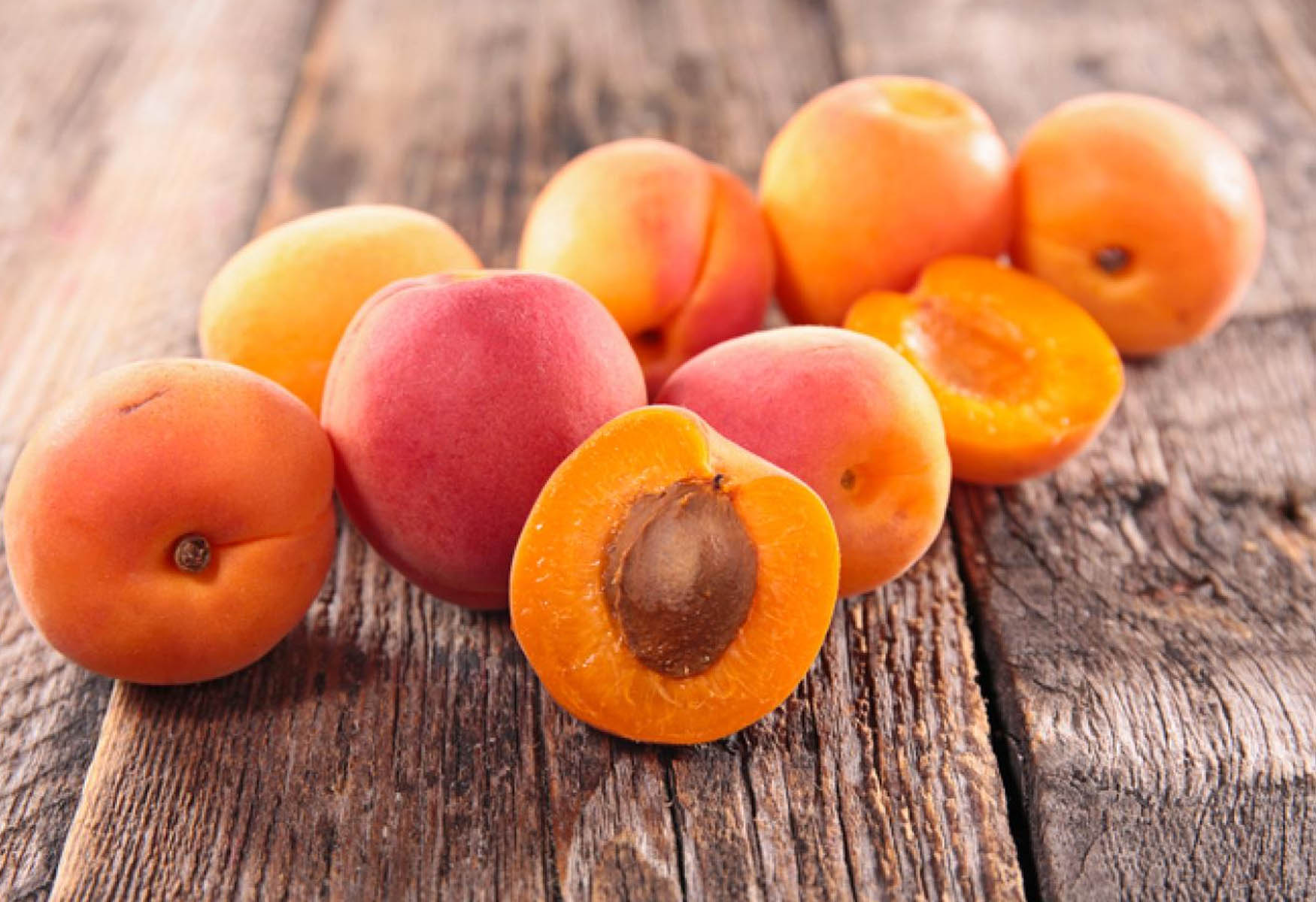
When it comes to delicious and versatile fruits, apricots are a clear winner. With their vibrant orange color, juicy flesh, and sweet yet tangy flavor, apricots are a beloved addition to a variety of dishes. But did you know that apricots offer more than just their delectable taste? These small fruits are packed with nutritional benefits and have a fascinating history. In this article, we will explore 15 fascinating facts about apricots, from their origins to their culinary uses and health benefits. So, get ready to discover why apricots are not only a treat for your taste buds, but also for your overall health and well-being.
Key Takeaways:
- Apricots are packed with vitamins, minerals, and antioxidants, making them a healthy and delicious addition to your diet. They have a sweet and tangy flavor, perfect for both sweet and savory dishes.
- Apricots have a rich history dating back thousands of years, originating in Central Asia and spreading to Europe. Their blossoms are beautiful, and their oil is used in skincare products for its nourishing properties.
Apricots are a member of the rose family.
Did you know that apricots are part of the Rosaceae family? This botanical group also includes other fruits like cherries, peaches, and plums.
Apricots are rich in vitamins and minerals.
Apricots are packed with essential nutrients such as vitamin A, C, E, potassium, and dietary fiber. Incorporating apricots into your diet can contribute to overall health and well-being.
Apricots have a long history dating back thousands of years.
The cultivation of apricots can be traced back to ancient times, with evidence of their existence found in China dating back 4,000 to 3,000 BC.
Apricots are native to Central Asia.
Originally from China, apricots eventually spread to other parts of Central Asia and were introduced to Europe by the ancient Romans.
Apricots have a sweet and tangy flavor.
One of the reasons why apricots are loved by many is their unique combination of sweetness and tanginess, making them a delicious and versatile fruit.
Apricots are commonly used in both sweet and savory dishes.
Apricots are used in a variety of culinary applications, from jams and jellies to desserts, salads, and even savory dishes like chicken or pork recipes.
Apricots are a good source of antioxidants.
The vibrant orange color of apricots comes from the presence of beta-carotene, which acts as an antioxidant and helps protect the body against damage from free radicals.
Apricots are known for their potential health benefits.
Research suggests that apricots may have various health benefits, including improving digestion, supporting eye health, and promoting healthy skin.
Apricot trees produce beautiful blossoms in the spring.
Before the fruit appears, apricot trees bloom with delicate and fragrant pink or white blossoms, creating a stunning display in orchards and gardens.
Apricots are often dried to make a popular snack.
Dried apricots are a convenient and tasty snack option, packed with fiber and nutrients. They are a great addition to trail mixes or enjoyed on their own.
Apricot kernels contain amygdalin.
Apricot kernels, found within the pits of apricots, contain a compound called amygdalin, which can break down into hydrogen cyanide. These kernels should be consumed in moderation.
Apricot oil is used in skincare products.
Apricot kernel oil is commonly used in skincare products due to its moisturizing and nourishing properties. It is often used in facial oils, lotions, and creams.
Apricots are celebrated in the culinary world.
Apricots are highly regarded by chefs and home cooks alike for their versatility and ability to elevate both sweet and savory dishes with their unique flavor profile.
Apricot season typically occurs in the summer months.
The peak season for apricots is typically during the summer months, when they are at their ripest and most flavorful.
Apricot trees require specific growing conditions.
Apricot trees thrive in regions with a Mediterranean climate, characterized by warm summers, mild winters, and well-drained soil.
Conclusion
In conclusion, apricots are a versatile and delicious fruit that offer a plethora of health benefits. They are rich in vitamins and minerals, fiber, and antioxidants, making them a great addition to any diet. Whether you enjoy them fresh, dried, or included in various culinary creations, apricots are sure to tantalize your taste buds and boost your overall well-being. So go ahead, indulge in this golden fruit and reap all the wonderful advantages it has to offer!
FAQs
1. Are apricots good for weight loss?
Yes, apricots are an excellent fruit for weight loss. They are low in calories and high in fiber, which helps to keep you feeling full for longer, reducing the chances of overeating.
2. Can apricots help improve digestion?
Absolutely! Apricots are packed with fiber, which aids in digestion and prevents constipation. They also contain natural enzymes that can promote a healthy digestive system.
3. Are apricots good for the skin?
Yes, apricots are great for the skin. They are rich in antioxidants, which help to combat free radicals and slow down the aging process. Apricots also contain vitamins A and C, which contribute to healthy and glowing skin.
4. Can apricots improve eye health?
Absolutely! Apricots are a rich source of vitamin A, which is essential for good vision. Consuming apricots regularly can help maintain eye health and protect against various eye conditions.
5. Can apricots be enjoyed by individuals with diabetes?
Yes, apricots can be enjoyed by individuals with diabetes in moderation. They have a low glycemic index, meaning they have a minimal impact on blood sugar levels when consumed in reasonable amounts.
6. How can I incorporate apricots into my diet?
There are numerous ways to enjoy apricots. You can eat them fresh as a snack, add them to smoothies, salads, or yogurt, bake them into desserts, or even make homemade apricot jam. The possibilities are endless!
Apricots' versatility shines through their various forms and uses. Dried apricots pack a concentrated flavor punch, perfect for snacking or baking. Fresh apricots' juicy sweetness complements both sweet and savory dishes. Amaretto, an apricot kernel-flavored liqueur, adds a distinct touch to cocktails and desserts. Celebrating National Amaretto Day on April 19th is a delightful way to appreciate this fruit's influence. Exploring more apricot facts reveals the depth of this small but mighty fruit's charm.
Was this page helpful?
Our commitment to delivering trustworthy and engaging content is at the heart of what we do. Each fact on our site is contributed by real users like you, bringing a wealth of diverse insights and information. To ensure the highest standards of accuracy and reliability, our dedicated editors meticulously review each submission. This process guarantees that the facts we share are not only fascinating but also credible. Trust in our commitment to quality and authenticity as you explore and learn with us.


